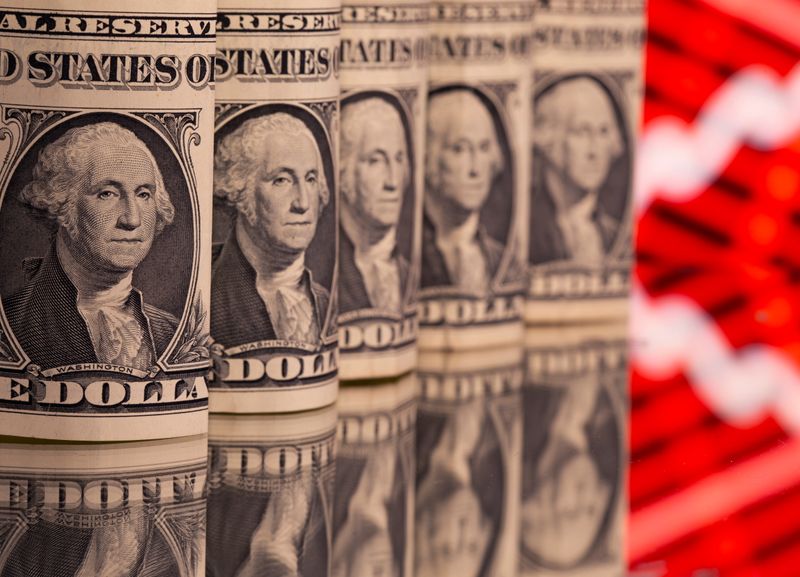By Kevin Buckland
TOKYO (Reuters) – Safe-harbour currencies like the Japanese yen and U.S. dollar held near multi-month highs against the riskier Australian dollar and British pound on Tuesday, as fears grow that a rampant coronavirus variant could upend the global economic recovery.
The yen surged to 80.05 per Aussie dollar on Monday for the first time since early February, before trading at 80.40 early Tuesday. It also rallied to an almost three-month top of 149.35 to the pound overnight, and last changed hands at 149.73.
The dollar strengthened to an almost eight-month high of $0.73225 per Aussie to start the trading week, and hit the highest since early February at $1.3655 to sterling. It last stood at $0.73390 per Aussie and $1.36685 versus the pound.
The yen outpaced the dollar, rising to 109.07 per greenback on Monday for the first time since late May, helped by a precipitous slide in benchmark U.S. Treasury yields to as low as 1.1740% for the first time since mid-February. On Tuesday, one buck bought 109.555 yen.
The euro underperformed the dollar, dipping overnight to the lowest since early April at $1.1764 before last trading at $1.17965.
The fast-spreading Delta variant of COVID-19 is now the dominant strain worldwide, and has been accompanied by a surge in infections around the United States, particularly in areas where vaccinations have lagged.
Meanwhile, Boris Johnson’s ‘freedom day’ – ending over a year of COVID-19 lockdown restrictions in England – was marred by surging infections and the prime minister’s own forced self-isolation after Health Minister Sajid Javid tested positive for the virus.
In Australia, nearly half of the 25 million population is living under lockdowns to quell an outbreak of the Delta variant.
“What is likely concerning markets now is … a surge in infections occurring in developed markets with high levels of vaccination,” National Australia Bank (OTC:NABZY) analyst Tapas Strickland wrote in a client note.
“That suggests virus restrictions may need to be in place for longer,” delaying the global recovery, he said.



